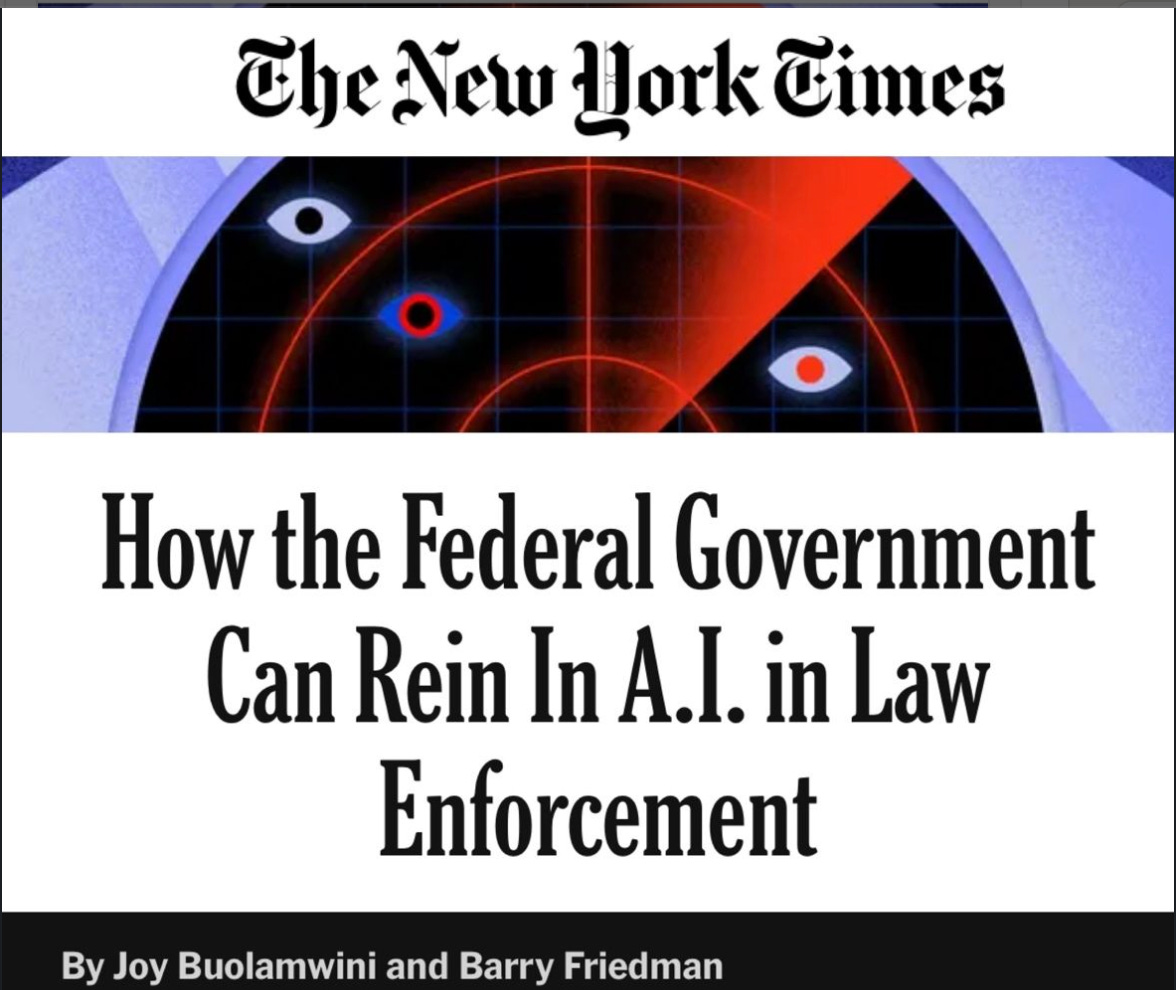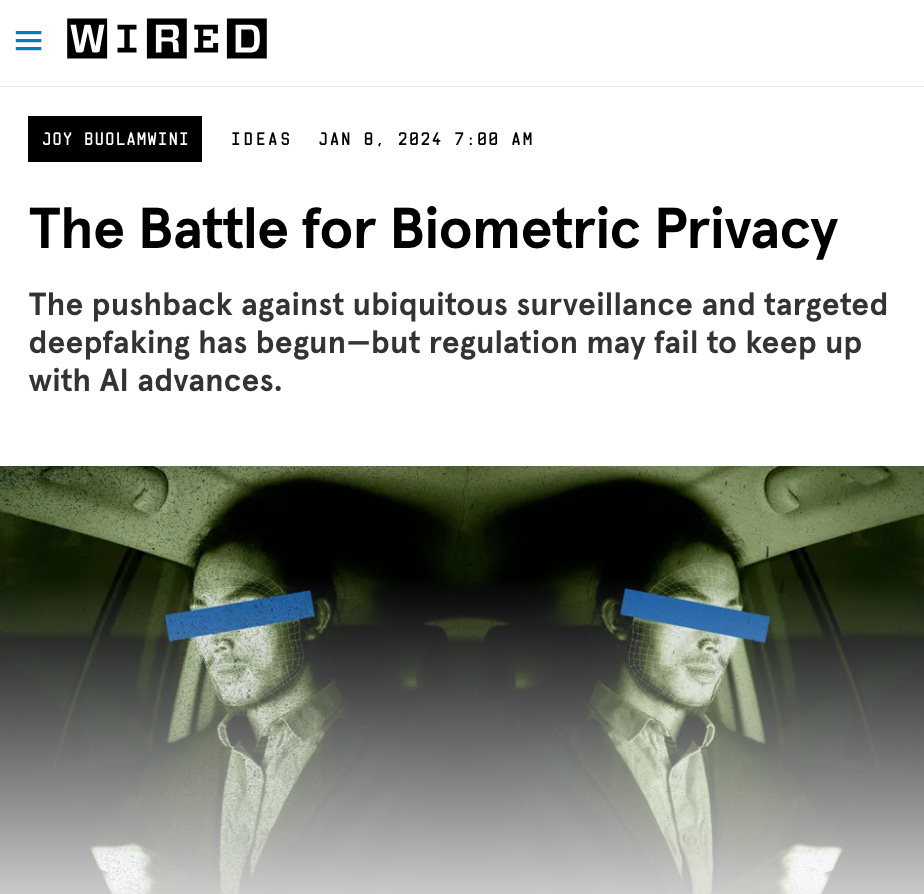New Year and Two New Op-Eds
For the New York Times and Wired World, I write about ways to rein in harmful facial recognition and the threats posed by the combination of generative AI and biometric technologies.
Happy New Year!
Thank you for all of your support in making my debut book Unmasking AI, a national bestseller in 2023. (Let me know in the replies if you would like a book tour recap.) My writing momentum continues in 2024 with back-to-back op-eds released during the first two weeks of January.
New York Times Op-Ed: How The Federal Government Can Rein In A.I. in Law Enforcement
While the world woke up to the possibilities of AI with 12 months of hype in 2023, 2024 will challenge AI companies to deliver on their promises and governments to enact solid guardrails on AI to protect everyday people from abuse. In my New York Times op-ed co-authored with Barry Friedman, we highlight loopholes in federal AI guidance that will lead to more algorithmic discrimination and AI harms if left unaddressed.
“The [federal government’s] work is commendable, but shortcomings in its proposed guidance to agencies could still leave people vulnerable to harm. Foremost among them is a provision that would allow senior officials to seek waivers by arguing that the constraints would hinder law enforcement. Those law enforcement agencies should instead be required to provide verifiable evidence that A.I. tools they or their vendors use will not cause harm, worsen discrimination or violate people’s rights.” (Buolamwini and Friedman 2024, New York Times)
Read the rest here: https://www.nytimes.com/2024/01/02/opinion/ai-police-regulation.html
WIRED World Op-Ed - The Battle for Biometric Privacy
WIRED World invited me to make prediction for AI in 2024. I decided to focus on the intersection of generative AI and biometrics. I let me imagination loose and reflected on potential creative resistance from a public newly aware that the their online video and audio clips can be used. I predicted a future where fashion is used as anti-surveillance gear, and people make at home face prosthetics. Here is a quick taste.
“In 2024, increased adoption of biometric surveillance systems, such as the use of AI-powered facial recognition in public places and access to government services, will spur biometric identity theft and anti-surveillance innovations. Individuals aiming to steal biometric identities to commit fraud or gain access to unauthorized data will be bolstered by generative AI tools and the abundance of face and voice data posted online.“ (Buolamwini 2024, WIRED World)
Read the rest here: https://www.wired.com/story/the-battle-for-biometric-privacy/
With gratitude,
Dr. Joy
P.S. I might be going overboard with citations, but these days one can never be too careful.






hi there, Dr. Joy. huge fan here. I direct a lab at Northwestern focused on tech, ethics, race, and tech. We published a recent essay on our work related to surveillance and AI technology in Chicago, with specific implications for how schools should teach computing. I'm sharing here and would be honored if you had a chance to read. with gratitude. https://sepehrvakil.substack.com/p/surveillance-safety-and-ai-in-chicago